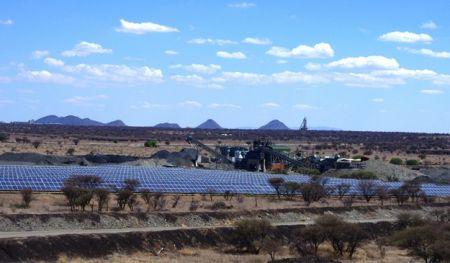
-
Communities near South African mines demand involvement in local renewable energy projects
-
Civil society groups support a model that directly benefits residents and workers
-
Report criticizes lack of consultation and weak enforcement of Social and Labor Plans
In South Africa, the drive for an energy transition is increasingly impacting the economy as the country grapples with a chronic energy deficit. Meanwhile, local communities are generally overlooked in renewable energy projects.
Communities located around mines are requesting to be more involved in renewable energy initiatives underway in their regions. This is highlighted in a report recently published by a collective of civil society actors, including the Center for Applied Legal Studies (CALS) and Lawyers for Human Rights.
Within the report, these organizations endorse a model where green energy projects also tangibly benefit the communities and laborers of these mining areas. This is currently not the status quo, though an increasing number of large mining corporations are investing in solar and wind projects.
Indeed, these projects are primarily designed to meet the energy needs of businesses and reduce their carbon footprints. Consequently, this leads to the development of these green energy initiatives, without tangible benefits for local populations.
This situation persists even though South African law requires mining companies to support the socio-economic development of these communities through so-called Social and Labor Plans (SLPs) — a mechanism which, so far, has failed to meet this objective due to lack of consultation, poorly coordinated projects, and limited oversight.
Local actors are therefore calling for green projects to be developed with direct participation from the affected communities. These groups could then invest, be involved in decision-making processes, and share the benefits.
“Otherwise, the risk is that a wealthy, powerful minority maintains dominance, simply swapping fossil fuels for cleaner energy without transforming the underlying capitalist system that benefits them,” the report read.
The course of this debate will potentially depend on the capacity of South African authorities to strengthen the implementation of social plans and regulate the participation of mining communities. Their ability to organize, assert their rights, and negotiate their role in these projects should also influence the process.










Comments